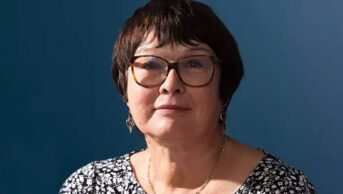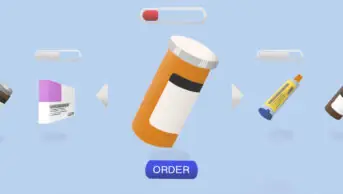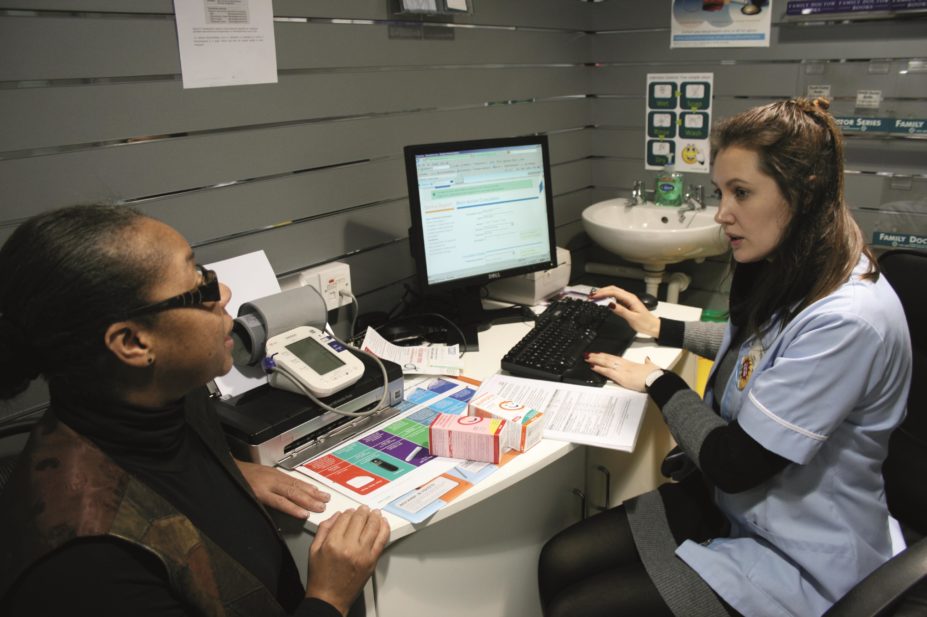
MAG / The Pharmaceutical Journal
On 2 November 2016, the Pharmaceutical Services Negotiating Committee (PSNC) called for the Department of Health (DH) to use the money cut from the community pharmacy budget to fund a national minor ailments service (MAS) across England. This was the latest in a long run of efforts by the PSNC to drive home the potential benefits of a MAS being rolled out on a national scale.
Ranging from head lice to colds to mild eczema, minor ailments are defined as common or self-limiting conditions that can be diagnosed and managed without medical intervention. While community pharmacies have always been able to help patients with minor ailments, patients who cannot afford to buy treatments often visit other NHS services, such as their GP, to get them for free. The MAS was brought in to enable pharmacists to treat minor ailments at NHS cost so patients do not have to resort to alternative healthcare services, in the hope of reducing pressure in those areas. Currently in England, however, it is up to clinical commissioning groups (CCGs) as to whether or not they run a MAS in their local areas.
According to Alastair Buxton, director of NHS services at the PSNC, by enabling all pharmacies to offer the same service for patients, a national MAS would bring many benefits, including efficiency savings and increased patient uptake.
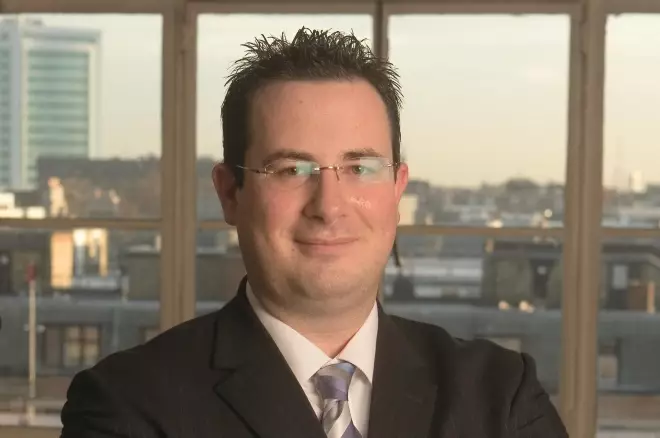
Source: Pharmaceutical Services Negotiating Committee (PSNC)
Alastair Buxton, director of NHS services at the PSNC says that a consistent national service would help to more effectively re-educate patients about how to care for minor conditions without visiting their GP
“For pharmacy and commissioners this can bring efficiencies because it avoids them having to reinvent services, specifications and resources at a local level; for patients and others involved in healthcare a single national standard can make it easier to understand what services they can expect to receive, which can in turn boost referral to and uptake of the service,” explains Buxton.
“A consistent national service would help us to more effectively re-educate patients about how to care for minor conditions without visiting their GP, and make it easier for NHS 111 to design care plans around the pharmacy advice available, both of which would be more likely to lead to changes in patient behaviour and an increase in self-care.”
Despite promises of a national scheme made by health minister David Mowat, who has spoken on more than one occasion about “a minor ailments scheme, which will be commissioned right across the country by April 2018”, NHS England has insisted that the service will continue to be commissioned by CCGs according to local need.
However, the pledge now is that NHS England will “encourage” all CCGs to adopt a MAS by April 2018. “Existing minor ailments schemes vary across the country… We are developing, for the first time, a consistent approach and infrastructure that will enable a direct referral to community pharmacy from NHS 111, and planning to encourage roll out across the country so that everyone has equal access,” a spokesperson for NHS England says.
From December 2016, NHS England will be testing the technical integration and clinical governance framework for referring people with urgent minor ailments to community pharmacy through NHS 111. However, patients referred to pharmacies from NHS 111 will only be supplied with medicines if a locally commissioned service is both appropriate and available, otherwise they will have to pay for their medicines.
The parties on either side of the negotiating table for the community pharmacy contractual framework in England appear steadfast in their views. But are the benefits of having a national MAS relevant across the country, as the PSNC argues, or should it be left to local commissioners to decide based on local need, as NHS England believes?
The case for a national scheme
In Scotland, the decision to fund a national MAS was made over ten years ago. According to Adam Osprey, policy and development pharmacist at Community Pharmacy Scotland, it has been a “huge success”.
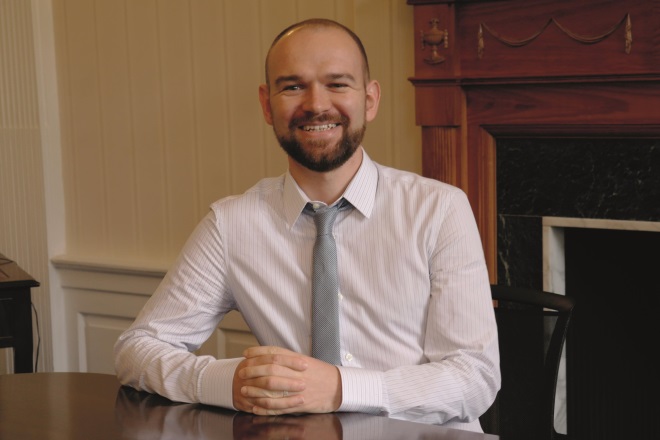
Source: Courtesy of Adam Osprey
“Whilst the savings may drive us to further improve the service, the benefit to the patient is always central to proceedings,” says Adam Osprey, policy and development pharmacist at Community Pharmacy Scotland, about the national minor ailments scheme in Scotland
“The real benefit is for patients in Scotland,” he says, referring to more than 900,000 patients who have registered for the service since it was rolled out. “Where eligible, they are able to access high quality care and advice when they need it, without an appointment.”
Those currently eligible to register for the service in Scotland include those under the age of 16 years in full-time education; individuals aged 60 years or over; individuals receiving income support; individuals with a valid maternity, medical or war pension exemption certificate; and individuals who are entitled to an NHS tax credit exemption or valid HC2 certificate.
“The financial savings and reduced GP workload are a fantastic side effect of this vital service, [but] whilst the savings may drive us to further improve the service, the benefit to the patient is always central to proceedings,” he adds.
Osprey says the success of the national scheme is not down to any particularly unique characteristic of Scotland and the communities living there, but simply because of the accessibility of pharmacies and their ability to provide a quick and effective solution for people who are unwell but may not need to see their GP.
In September 2016, the Scottish government announced a pilot to expand the service to all patients registered with a GP in the Inverclyde area, starting in January 2017. It is hoped that by expanding the service to all it will further reduce pressure on GPs in Scotland.
The Community Pharmacy Management of Minor Illness (MINA) study, conducted by the University of Aberdeen, NHS Grampian and the University of East Anglia in January 2014, found that pharmacy minor ailment consultations were less expensive than GP consultations, and more than one in ten GP consultations were for a minor ailment that could have been treated in a community pharmacy. The study also narrowed down the primary reasons why patients tend to seek care from a community pharmacy: convenience; not having to travel too far; and thinking that their illness was not serious enough to warrant a visit to the GP.
An evaluation of the success of the MAS is ongoing. On 3 November 2016, a research team led by Vibhu Paudyal, a lecturer at Robert Gordon University in Aberdeen, received a grant from the European Society of Clinical Pharmacy to move forward with a nine-month project, ‘Types of clinical outcomes and methods for their assessment in the evaluation of pharmacist-led management of minor ailments: a systematic review’. By considering the clinical and patient outcomes of pharmacy-led minor ailments management in the UK and abroad, the team hopes to inform the development of a global gold standard for evaluating a MAS.
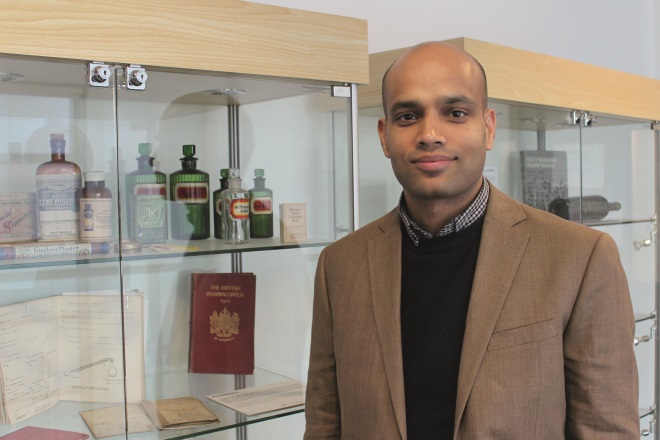
Source: Courtesy of Vibhu Paudyal
Vibhu Paudyal, a lecturer at Robert Gordon University in Aberdeen, recently received a grant from the European Society of Clinical Pharmacy to move forward with a nine-month project, ‘Types of clinical outcomes and methods for their assessment in the evaluation of pharmacist-led management of minor ailments: a systematic review’
According to Paudyal, the UK is one step ahead when it comes to managing minor ailments. “The UK, especially Scotland, has been quite leading in terms of implementation [of a MAS] so the rest of the world is looking at the UK system of minor ailments management.
“My colleagues in Canada have looked at our system and tried to implement similar systems in several provinces.”
Addressing the needs of local communities
Ben Merriman, member and treasurer of Cumbria local pharmaceutical committee (LPC), says the positive uptake of the MAS when it was trialled in the most deprived areas of Cumbria convinced local commissioners to roll out the service across the county.
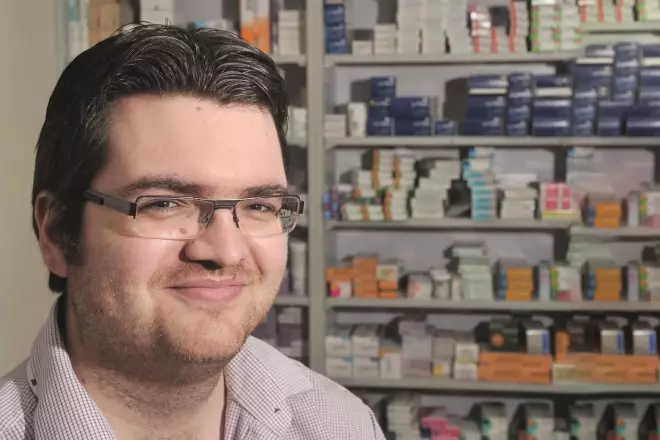
Source: Courtesy of Ben Merriman
Ben Merriman, member and treasurer of Cumbria local pharmaceutical committee, says the idea of the minor ailments service in Cumbria is to try to integrate pharmacy into the primary care pathway so patients think of pharmacy as the first port of call for treatment
“In order to prove that the service worked we tried it in the parts of the county that would genuinely be needing it most,” explains Merriman. “Once we showed proof of concept we were able to convince GP leaders and other parts of the localities that the service was actually going to be of benefit to them and the patients.”
Peter Higgins, chief executive of Lancashire and Cumbria local medical committee (LMC), says the close relationship between GP practices and community pharmacies in some areas of Cumbria is vital. “Where it works well it can relieve pressure on hard pressed practices,” he says. According to Higgins, the need for a MAS in Cumbria, but not in Lancashire, is down to its “extreme rurality”.
“Social studies have shown that certain areas of Barrow in Furness, where I mainly practice, are some of the most deprived areas in the country,” says Merriman. “[There are] big pockets of deprivation — people who have to choose between making sure their child has enough food and having a bottle of paracetamol for a fever.”
However, Merriman stresses that the scheme is not about patients getting “free stuff”.
“The idea is to try to integrate pharmacy into the primary care pathway so patients think of pharmacy as the first port of call for treatment. It’s about showing patients that if they come to us and we can’t help them we can get them the help they need elsewhere.”
Between April 2015 and March 2016, the 112 pharmacies commissioned to deliver the MAS in Cumbria carried out 14,747 interventions. However, Merriman says that the MAS has limitations that GPs and patients need to be aware of. “We had problems where patients were being referred to us for things that weren’t part of the scheme,” he says. “[The MAS] does have fantastic advantages, but it can’t be seen as a magic bullet.”
One region where the limitations of the MAS were realised and acted on was in Cambridgeshire and Peterborough. In August 2016, the two schemes, known locally as Minor Ailments Scheme Cambridgeshire and Pharmacy First for Children in Peterborough, were decommissioned by the CCG. The decision to cut these services followed a public consultation that received 1,344 responses from trade bodies, organisations and members of the public. A total of 75.2% of respondents had never used the MAS and many had not even heard of it. Despite this, however, the CCG maintains that the decision to discontinue the service was not based on the usage but on the range of products provided, which can be purchased from pharmacies or, where appropriate, from non-pharmacy outlets.
“We are working with our community pharmacy colleagues to help support our population to make informed choices about self-care,” says Sati Ubhi, chief pharmacist for the CCG. “We recommend that patients still visit their community pharmacy to seek advice and support for their minor ailment medication needs. Many of the medicines provided by these schemes are available to buy at low cost.”
The CCG says there was no evidence to suggest that the MAS decreased pressure on GP practices in the area. The decision to decommission the service brings Cambridgeshire and Peterborough in line with their neighbouring CCGs, which do not offer it either. According to the CCG’s consultation report, the £230,000 that it was spending on the two services will now be repurposed to support front-line services, such as those provided through A&E departments and the ambulance service.
The level of deprivation in Cambridgeshire is relatively low compared with the rest of the country. Government statistics on relative deprivation in small areas in England ranked Greater Cambridge and Peterborough 29 out of 39 areas, while Cumbria is ranked at number 13. School funding, which is allocated on the basis of measures such as deprivation and sparsity, is also lower in Cambridge than in any other part of the country. This low level of deprivation could explain why the MAS is seen to be of less benefit in this location compared with places where levels of deprivation are much higher.
Another area where the provision of the MAS is being scrutinised, is in Bristol, where the service has been running since 2008. Currently, 79 out of 96 pharmacies are accredited to provide the service and, according to Richard Brown, chief officer of Avon LPC, in an average year the MAS reduces GP appointments by 7,000-8,000. However, in February 2016, NHS England South (South West) intimated that it planned to decommission the service in Bristol. It was only through joint lobbying activities with the LMC that the LPC was able to convince NHS England to rethink its plans: “We worked closely with the LMC and [GP] surgeries to demonstrate the scheme was of huge value – if it had been pulled it would have been hugely damaging,” says Brown.
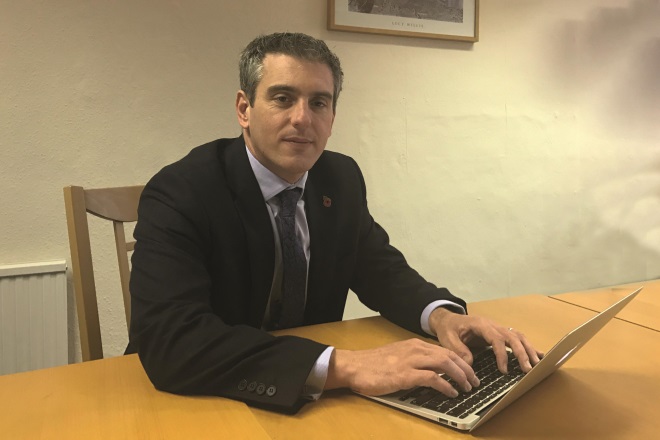
Source: Courtesy of Richard Brown
According to Richard Brown, chief officer of Avon local pharmaceutical committee, in an average year the minor ailments service in Bristol reduces GP appointments by 7,000-8,000
But the future of the scheme is not certain – NHS England has suggested that the MAS is only safe for the next four months. “In March [2016], we extended the commissioning of the minor ailments scheme until March 2017,” explained a spokesperson for NHS England South (South West). “GPs are currently experiencing significant workload and workforce issues and we’re trying to support local providers in a time of pressure.
“The scheme is currently under review and we are discussing its future provision with local clinical commissioners for 2017–2018 onwards.”
Spreading the word
Getting GPs on board and promoting the service to patients has been essential to the success of the MAS on the Isle of Wight, according to Francisco Alvarez, community pharmacist lead on the primary care prescribing committee at the Isle of Wight CCG. Pharmacy First was commissioned to tackle two problems: the GP shortage on the island and the need to reduce the cost of the out-of-hours service, which totalled around £75 per patient encounter, with some patients accessing the service for repeat medication.
“This scheme only works because GPs sign up to the service – otherwise you’re clapping with one hand,” explains Alvarez. “When I talk to my GP colleagues about it, I sell it to them as ‘it’s commissioned for you to help you’.”
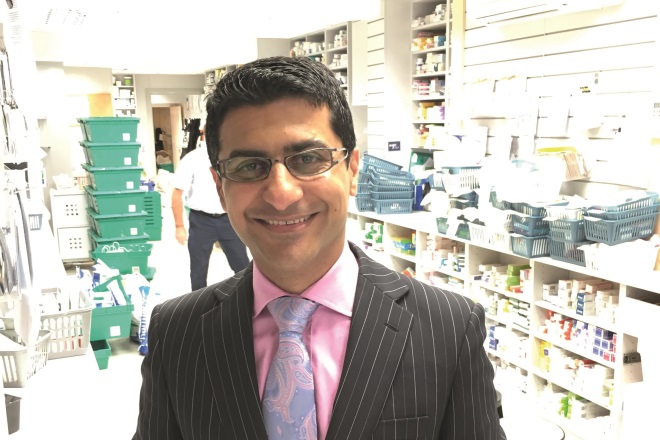
Source: Courtesy of Francisco Alvarez
Francisco Alvarez, community pharmacist lead on the primary care prescribing committee at the Isle of Wight clinical commissioning group, says the success of the scheme on the island is the result of working closely with GPs
Between January and December 2015, Alvarez’s pharmacy dealt with 1,105 patients under the Pharmacy First scheme at a cost of £4.50 per item supplied. Of those 1,105 patients, 1,068 received advice and medication there and then. Information collected from patients suggested that, without the availability of the Pharmacy First scheme, more than half (636) would have contacted their GP surgery and 109 would have gone without medication altogether.
To engage GP practices, Alvarez gave presentations to the entire practice team. Practices now refer their patients to pharmacy – something that Alvarez says has never happened before. Some GP surgeries also signpost patients to the Pharmacy First scheme in their pre-recorded telephone message.
However, not everyone is convinced about the service’s success. Peter Arrow-Smith, practice manager of the Dower House Surgery in Newport, says the wider recruitment problem on the island means that “nine times out of ten” patients have to be seen by locum pharmacists, who are unable to provide the service. “It would be fantastic… if it worked. It’s very frustrating; we send patients down [to the pharmacy] and then they have to come back again. We then have to see them straight away because they’ve been messed around.”
Moving towards full roll out
In March 2013, the Welsh government announced its intention to launch a national common ailments service in Wales called ‘Choose Pharmacy’. Three years later, following pilots in north Wales and Cwm Taf in south Wales, the government announced an investment of £750,000 in community pharmacy to support the roll out of the Choose Pharmacy IT system to around 400 pharmacies. The technology enables community pharmacies to electronically record a consultation with a patient, allows electronic discharge information to be transferred, and enables pharmacists to provide an out-of-hours service for emergency medicines supply. The roll out of the Choose Pharmacy application began in October 2016. More than half of pharmacies in Wales are expected to have access to the technology by March 2018.
However, similar to the arrangement in England, it will be up to local health boards to decide whether or not to commission the service. “It is appropriate that health boards working with their primary care clusters determine whether the common ailment service is an appropriate solution for improving access to primary care in their locality,” says Andrew Evans, chief pharmaceutical officer for Wales. “They understand the needs of the patients and communities they serve, and how the service will integrate with other services available locally.”
Evans believes the success of a MAS is down to the service design, in particular ensuring that it is integrated with other parts of the health service. An evaluation of Choose Pharmacy by the Welsh government highlighted that delivery of the service is yet to make an impact at scale because patient awareness is low and GP practices continue to vary in their levels of engagement. Although most patients using the service had been referred from GP practices, inappropriate referrals continue to occur. “The evaluation was clear that ensuring the service integrated with other parts of primary care, particularly general practice, was critical to [Choose Pharmacy’s] success.”
But can a local approach allow the full benefits of the service to be realised? The solution proposed by NHS England — to encourage CCGs to commission the service — will not address issues of parity or provide assurances to GPs or patients that the pharmacy sector is offering a universal service.
Merriman says that equity is important. “Part of the problem with the NHS for years and years has been the postcode lottery,” he says. “It seems unfair that patients in Cumbria are able to [access] this service but patients in Lancashire aren’t.”
And Osprey argues that the success of the scheme in Scotland was reliant on it being a national service. “It ensures equity of care for all and allows pharmacy to play its part in bolstering primary care,” he says.
